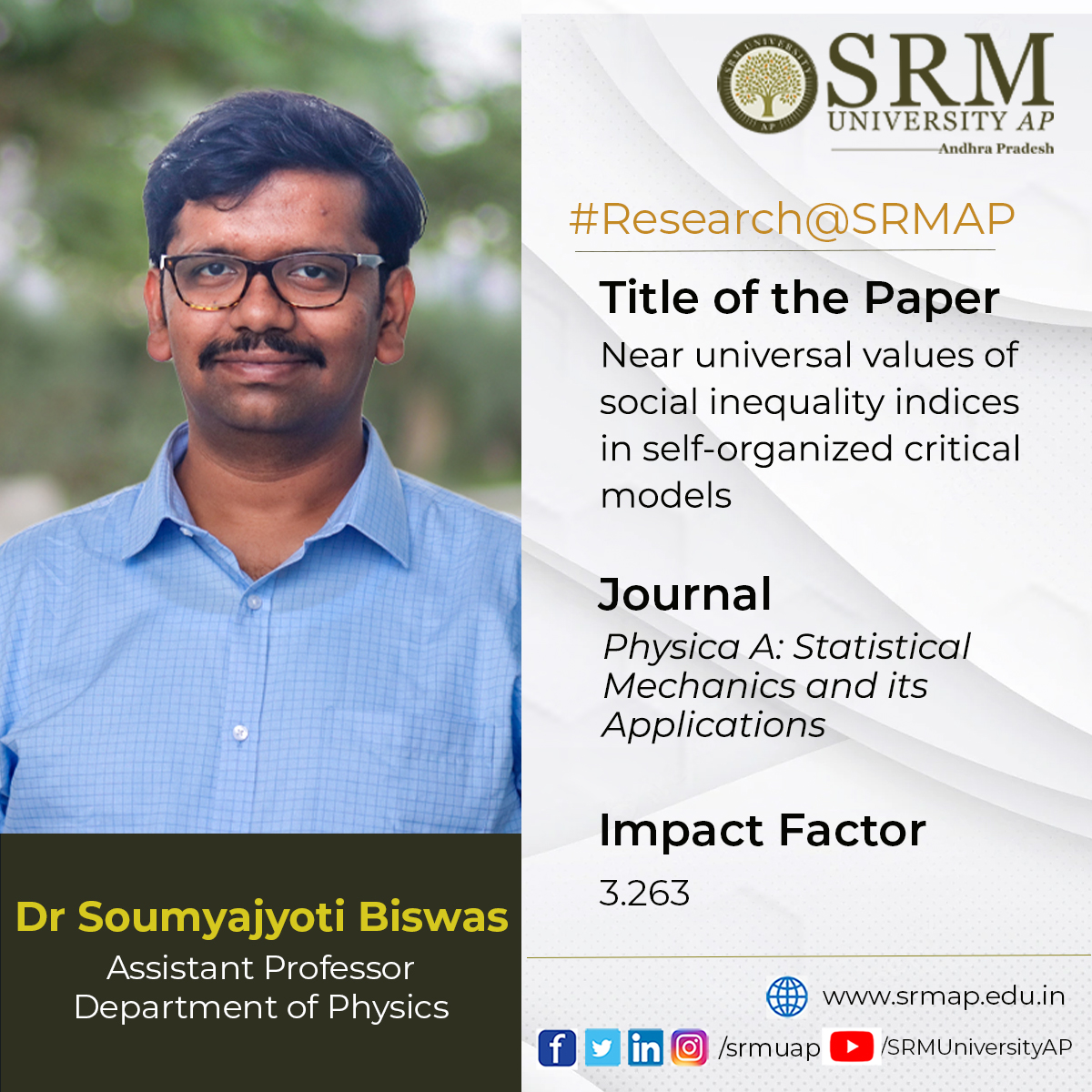
The Department of Physics is glad to announce that Dr Soumyajyoti Biswas, Assistant Professor, has published a paper titled ” Near universal values of social inequality indices in self-organized critical models” in the journal Physica A: Statistical Mechanics and its Applications having an impact factor of 3.263. This research was done in collaboration with Prof S S Manna of S N Bose National Center for Basic Sciences and Prof B K Chakrabarti of Saha Institute of Nuclear Physics.
It is well known that wealth invariably accumulates only in a few hands while a majority of the world continues to remain poor. In economics, it is quantified in Pareto’s 80-20 law (20% of people possess 80% of wealth) or ‘The Law of the Vital Few’. This research reveals that the implication of this law goes far beyond the socio-economic systems. It is also a crucial indicator of the onset of critical phenomena in a wide class of physical systems.
It has been observed that in the dynamics of disordered systems, such as fracture and breakdown of solids, slowly increasing the external force produces acoustic emissions (crackling noise), the sizes of which follow Pareto-like behaviour (most noises are weak, only a few are strong that results in the breakdown). Quantifications of these “inequalities” in these physical systems reveal some universal characteristics in a wide class of models, known as self-organized critical systems.
The main implication of this observation lies in predicting catastrophic breakdown in disordered systems. Applications of these inequality measures, which are traditionally in the domain of social sciences, have proved to be immensely useful in identifying the approaching breakdown points in the models of disordered systems. Given that the methods are applicable to a wide variety of models, the 80-20 law has the potential for a wide range of applications. Dr Biswas and his PhD student Diksha are currently working with a team in Spain on experimental data and studying these inequalities in real systems.

